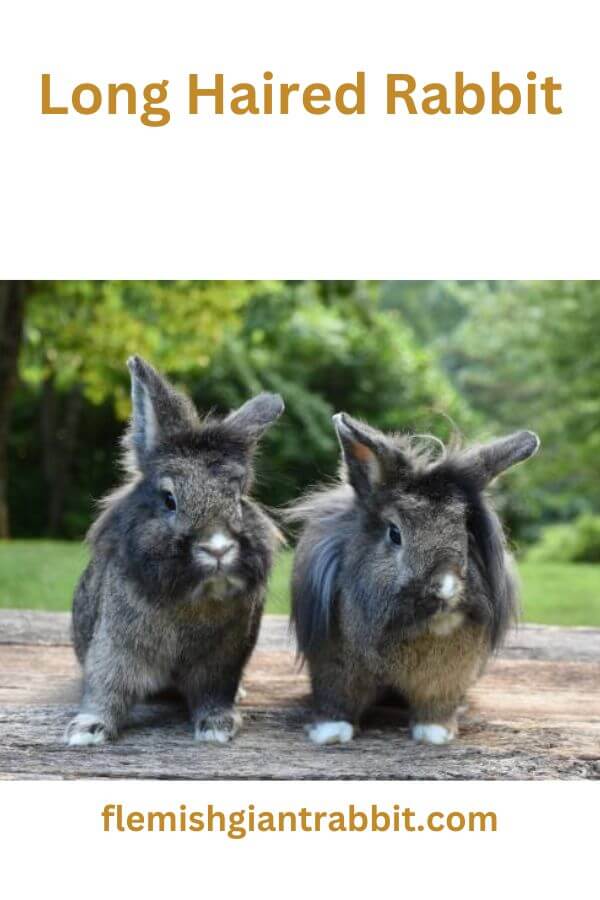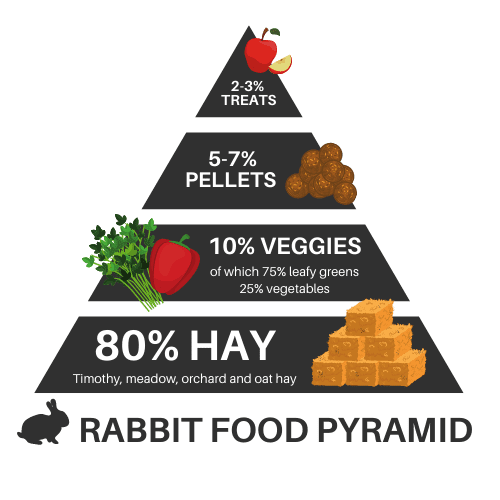
Rabbits are cute and popular pets. They come in different breeds, each with its special traits. One type is the long haired rabbit, known for its fluffy and fancy fur. In this article, we’ll talk about long haired rabbits. We’ll learn about their looks, how to take care of them, the popular breeds, and some interesting facts. If you want to own a long haired rabbit or only want to know more about it. This guide has all the info you need about these enchanting creatures,
Characteristics of Long Haired Rabbit
Long haired rabbit have some characteristics that make them fascinating pets. Here are some important things about them:
- Beautiful Fur: The most obvious thing about long haired rabbit is their stunning fur. It can be soft, silky, thick, or fluffy, depending on the breed. It’s fun to watch them hop around with their fancy fur flowing behind them.
- Friendly Personalities: Long haired rabbits are friendly and loving. They like being with people and can make strong bonds with their owners.
- Different Colors and Patterns: They come in lots of colors and patterns. From all-white or all-black to spotted or even three-colored. They are even more appealing because they come in so many hues.
- Gentle Behavior: Many long haired rabbits are calm and gentle. This makes them great pets for families with kids or people who want a relaxed companion.
- Playful and Curious: Long haired rabbits are often curious and playful. They like exploring their surroundings and playing with their owners.
Physical Attributes of Long haired Rabbits
Hairless rabbits are small mammals covered with fur. The fur can grow several inches long, giving them a unique charm. They possess elongated ears, short tails that are fluffy in nature, and remarkably robust hind legs. These hind legs are quite strong, enabling rabbits to hop as their primary mode of movement. To facilitate hopping, their hind feet possess four long, webbed toes, which prevent them from splaying apart during jumps.
Their front paws each bear five toes. Notably, certain rabbit species can achieve impressive speeds of 35 to 45 miles per hour (56 to 72 kilometers per hour), propelled by their powerful hind legs. Interestingly, young rabbits exhibit a walking gait rather than hopping.
They come in a variety of colors and sizes, weighing from 2 and 16 pounds (1 and 7 kilograms) depending on the breed. They have two pairs of sharp incisors, one on top and one on the bottom. They also possess two peg teeth situated behind their upper incisors. These teeth continually grow throughout the rabbits’ lives and are adapted for efficient chewing.
Popular Long Haired Rabbit Breeds
Long haired rabbits come in many different breeds, each with its special traits. Here are some of the most popular ones:
- Angora Rabbit: This breed has long, silky wool. Angora rabbits are famous for their looks and delicate appearance. Rabbit enthusiasts like them.
- American Fuzzy Lop: This rabbit is a friendly and lively rabbit with longer hair, and a flat face, and long ears. It requires a large amount of area to run around and has to have its “wool”-like fur constantly combed and maintained. The American Fuzzy Lop also needs a particular diet to maintain good fur, similar to the Giant Rabbit.
- Lionhead Rabbit: Lionhead rabbits have fur around their head that looks like a lion’s mane. They have a small body and are friendly and social.
- Jersey Wooly Rabbit: The Jersey Wooly is a small breed with dense and wooly fur. Despite their size, they have big personalities. They’re a popular choice among rabbit enthusiasts.
- English Angora Rabbit: Like Angora rabbits, English Angoras have long, silky wool. They have tufts of fur around their ears and a compact body.
Care Requirements for Long haired Rabbit
Long haired rabbit need extra care because of their fancy fur. Keep these vital points in mind:
Grooming
Grooming is important for your rabbit’s well-being. This is because their fur can get tangled and messy. Here are some grooming tips:
- Trimming: Some long haired rabbit need occasional fur trimming. This helps keep it at a manageable length. Ask a professional groomer or vet for advice on the right length to trim the proper way.
- Regular Brushing: Long haired rabbit need regular grooming. This keeps their fur healthy and looking good. Brush their fur at least once a week using a soft brush made for rabbits. It helps remove loose fur, prevents tangles, and keeps their coat in good shape.
- Wool Breeds: Some breeds, like Angora rabbits, need more frequent and careful grooming. This prevents tangles and wool blocks, which can harm their health.
- Nail Trimming: Trim your rabbit’s nails regularly. This prevents them from growing too long. Long nails can be uncomfortable or cause injuries, so it’s important to keep them at the right length.
Housing and Environment
Creating a good living environment for your long haired rabbit is important. Consider these things:
- Cage or Hutch: Provide a spacious and well-ventilated pen for your rabbit. Make sure it’s spacious enough so that they can move about easily. Put soft bedding like hay or straw to keep them warm and cozy.
- Temperature and Lighting: Long haired rabbits are sensitive to extreme temperatures. Keep them away from direct sunlight and drafts because both can affect their health. Give them a balanced light-dark cycle to mimic natural daylight.
- Exercise and Play: Like all rabbits, they need regular exercise to stay healthy and happy. Let them have supervised playtime outside their cage in a safe area. Give them toys and tunnels to keep them active and entertained.
- Spacious Living Area: Provide a large and secure enclosure for your long haired rabbit. They need space to move freely. A big indoor pen or a rabbit hutch with enough room is best.
- Climate Control: Long haired rabbits are sensitive to temperature extremes. Make sure their living space is well-ventilated and protected from drafts. Maintain their warmth and cooling in hot and cold weather, respectively.
- Comfortable Bedding: Use soft bedding like straw or hay in the enclosure. This gives your rabbit a cozy place to rest. Make sure they have separate areas for eating, drinking, and using the litter box.
- Supervised Outdoor Time: They can enjoy being outside in a safe and enclosed space. But always be careful of predators and never leave them alone.
Diet and Nutrition

A balanced diet is important for the health of your rabbit. Here’s what they need to eat:
- Leafy Greens: Include leafy greens in your rabbit’s diet. Examples of deal greens are kale and romaine lettuce and cilantro. Spinach and romaine lettuce are good choices. Avoid starchy or sugary vegetables. They provide important nutrients and keep them healthy. But avoid foods that are toxic to rabbits, like onions, chocolate, or caffeine.
- Hay: Give your rabbit unlimited fresh hay, like Timothy hay or orchard grass. This keeps their digestion healthy and helps them wear down their teeth.
- Pellets: Choose high-quality rabbit pellets made for long haired rabbits. Look for ones without added sugars or fillers. Pay attention to the feeding recommendations based on the weight of your rabbit.
- Water: Make sure your long haired rabbit always has fresh and clean water available. Use a drip-feed bottle or a sturdy water bowl that won’t tip over. Clean and refill their water dish regularly to keep them clean and make sure they stay hydrated.
- Balanced Diet: Long haired rabbits need a well-balanced diet to stay healthy. Give them a mix of fresh hay, good-quality pellets, and fresh vegetables every day.
- Moderate Treats: Don’t give your rabbit too many treats. Overfeeding can lead to obesity and health problems. Give them treats in moderation as rewards or for fun.
Health Care
Regular vet check-ups are important for your long haired rabbit’s health. Here are some things to keep in mind:
- Routine Vet Check-ups: Routinely take your rabbit to a vet who knows about rabbits. They can give vaccinations and do health exams. They can also offer assistance with any worries or issues.
- Watch for Health Issues: Long haired rabbits are more prone to certain health problems. They may have dental issues, wool block, or ear infections. Pay attention to their health and behavior. If you notice any signs of illness or discomfort, take them to the vet.
- Clean Living Environment: Keep your rabbit’s enclosure clean and hygienic. Clean it always, along with the litter box and food dishes. This helps prevent bacteria or parasites from building up and harming their health.
Fascinating Facts about Long haired Rabbit
Now let’s learn some interesting facts about long haired rabbits:
- Natural Insulation: Long haired rabbits have thick fur. The fur helps them stay warm in cold climates.
- Color Variations: Long haired rabbits come in many colors and patterns. There are solid, agouti, and broken patterns. Each breed has its accepted colors and markings.
- Frequent Shedding: Long haired rabbit shed as much as short haired rabbit. Regular brushing helps control shedding and prevents tangles.
- Grooming Competitions: Some long haired rabbit owners take part in grooming competitions. Rabbits are judged based on the quality and condition of their fur.
- Bonding through Grooming: Grooming your long haired rabbit can be a bonding experience. It helps build trust and strengthen your relationship. Use this time to show them affection and create a calming experience.
Conclusion
Long haired bunnies are without a doubt cute with their soft and fluffy fur. They need more care than short haired bunnies, but it’s worth it. Take proper care of them. Brush their fur, and give a comfortable home. Feeding them well, your long haired bunny will be happy and healthy. Taking care of these amazing creatures is as fun as having them as pets!